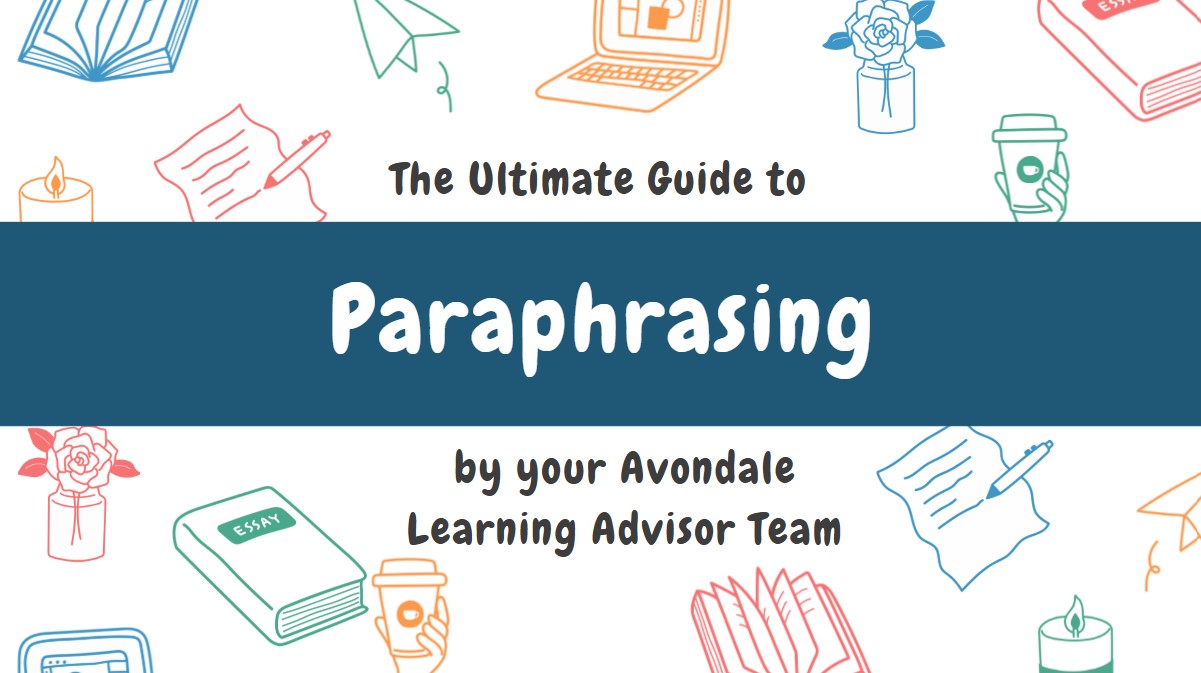

What is Paraphrasing?
Paraphrasing is to put something previously written or said, by someone else, into your own words. It is a way of rewriting someone else’s ideas without changing the original idea, and if done well, will often result in a summary that is more succinct than the original text (University of Adelaide, 2014). Learning how to paraphrase is an important skill toward developing your academic autonomy.
Academic Integrity
Almost all of what you write at a tertiary level will call on the body of work by experts in your particular field of study. Their work will “provide you with information, evidence and ideas, but must be incorporated into your work carefully. Quoting, paraphrasing and summarising are all different ways of including the works of others in your assignments [assessments]” (University of NSW, n.d., p. 1).
Why Paraphrase?
Paraphrasing allows you to:
How to Paraphrase
The key to paraphrasing is making sure you understand the original material you are reading before you attempt to rewrite it in your own words. Read it through carefully and explain it to someone else. Then, write the paraphrase without looking at the original to help ensure you use your own words and sentence structure.




(The Paraphrase Comics)
Avondale University acknowledges our Sovereign God as Creator and Provider of all things. We respectfully acknowledge the Awabakal and Darramuragal people as the traditional custodians of the lands on which we live, work, study and worship across our Lake Macquarie and Sydney campuses. We pay our respects to Elders past, present and emerging, and extend that respect to all First Nations People.
Avondale University is a member of the worldwide Seventh-day Adventist system of universities and colleges.
CRICOS Provider No.: 02731D. RTO: 91191. TEQSA: PRV12015. ABN: 53 108 186 401.
© Avondale University Ltd 2025